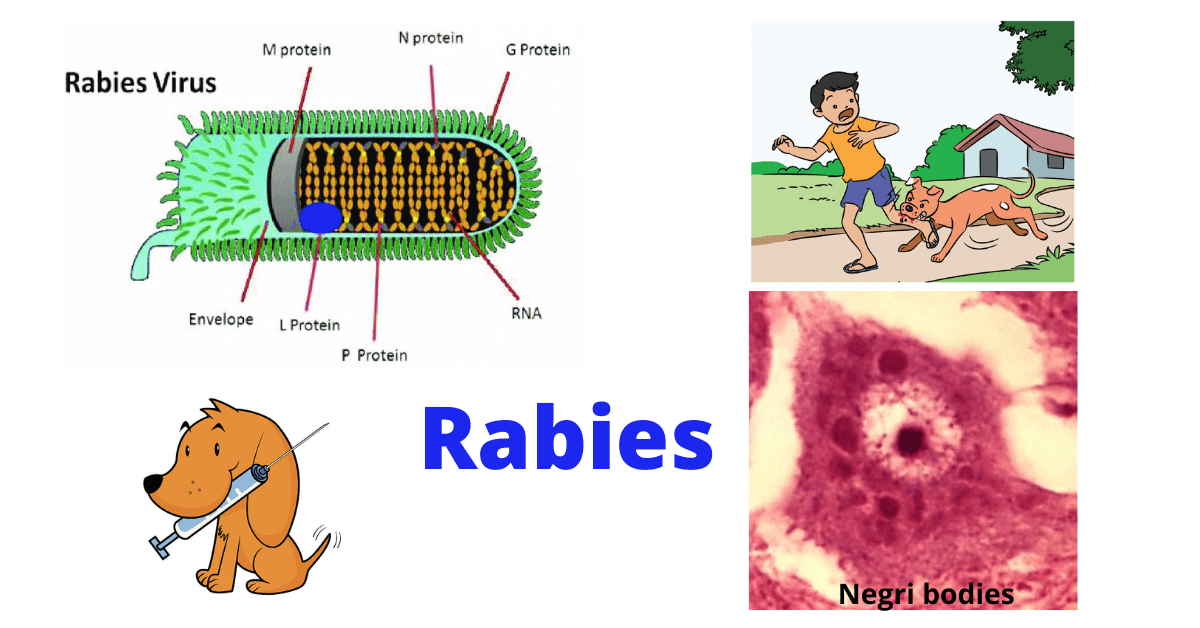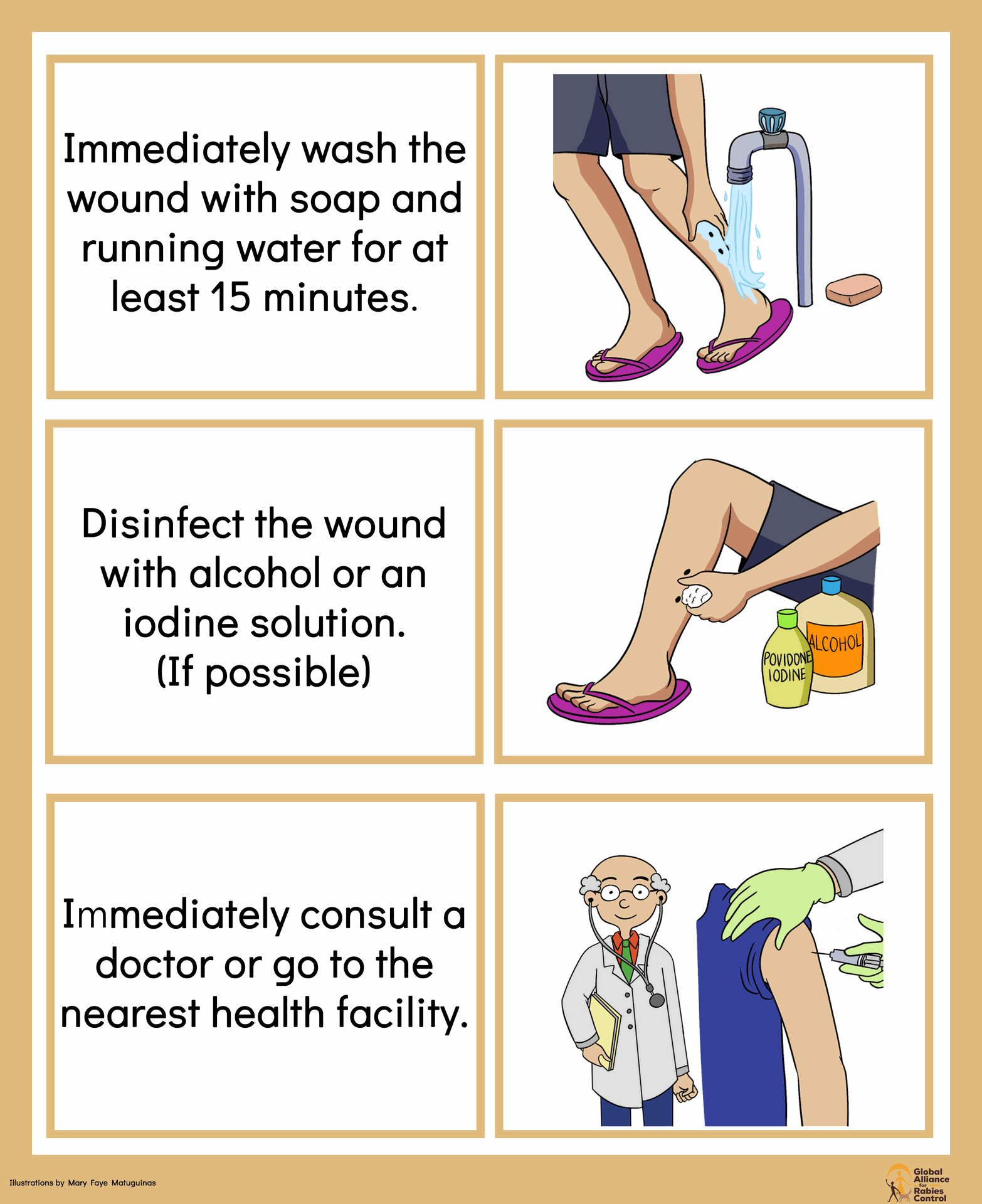Rabies Virus
Rabies virus is a deadly virus that belongs to the Lyssavirus genus within the family Rhabdoviridae. It primarily affects mammals, including humans, and causes a severe and often fatal disease known as rabies. The virus is typically transmitted through the bite or scratch of an infected animal, most commonly dogs in many parts of the world. Other animals that can transmit rabies include cats, bats, raccoons, skunks, and foxes.

Key facts about rabies virus:
1. Transmission:
The virus is usually transmitted through the saliva of an infected animal when it bites or scratches a person or another animal. In some cases, rabies can also be transmitted through mucous membranes or open wounds if they come into contact with infected saliva.
2. Incubation period:
The incubation period for rabies can vary but usually ranges from a few weeks to several months. During this period, the virus remains localized around the site of infection and slowly spreads to the central nervous system.
3. Symptoms:
Once the virus reaches the central nervous system, symptoms of rabies start to appear. Early symptoms may include fever, headache, and discomfort at the site of the wound. As the disease progresses, it leads to agitation, confusion, hallucinations, excessive salivation, difficulty swallowing (hydrophobia), and ultimately paralysis and death.
4. Prevention: Rabies is preventable through post-exposure prophylaxis (PEP) given soon after potential exposure to the virus. PEP consists of wound cleaning, rabies vaccination, and, in some cases, administration of rabies immune globulin (RIG).

5. Vaccination:
In regions where rabies is prevalent in wildlife or where dog rabies is still a problem, routine vaccination of domestic animals (dogs, cats, etc.) is crucial to prevent transmission to humans and control the disease.
6. Global impact:
Rabies is present on all continents except Antarctica, and it remains a significant public health concern in many parts of the world. It is estimated that tens of thousands of people die from rabies every year, primarily in Africa and Asia.
Rabies is a preventable disease, but once symptoms appear, it is almost always fatal. Therefore, it is essential to seek immediate medical attention if you are bitten or scratched by an animal, particularly if you are in an area where rabies is a concern. Vaccination and responsible animal control measures are essential in controlling the spread of the virus and protecting both humans and animals from this deadly disease.

:max_bytes(150000):strip_icc()/rabies_symptoms_IL-5aec9701c0647100365d492f.png)

